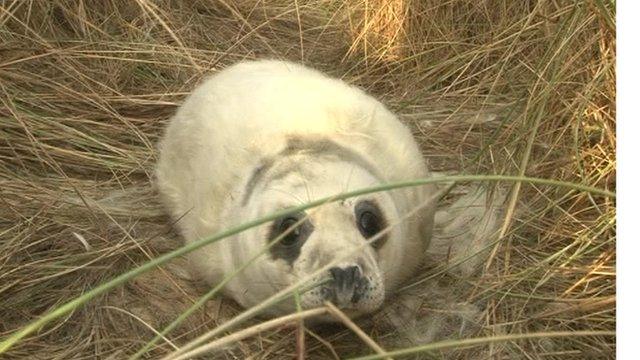Blakeney Point grey seal pup births break record
- Published
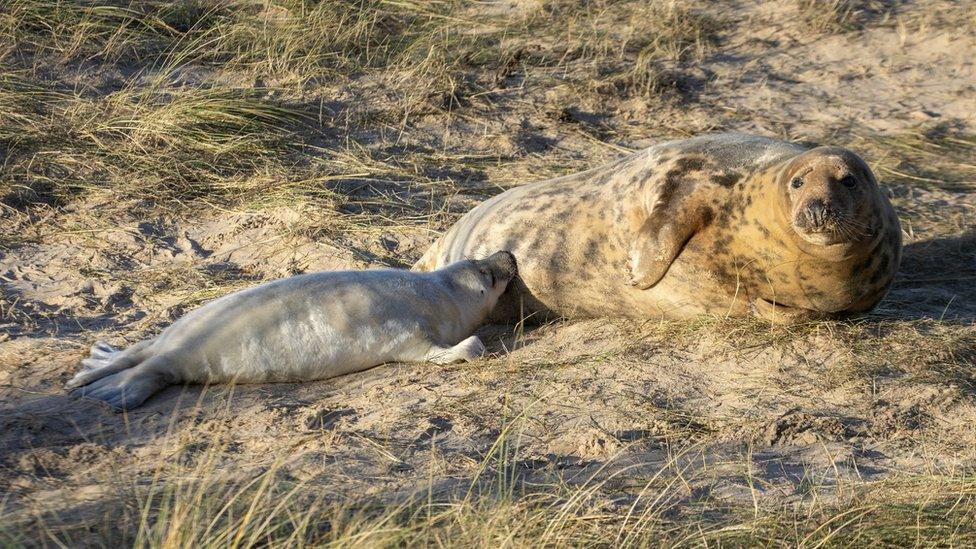
A mother feeding her young pup on Blakeney Point
The number of seals born at the UK's largest grey seal colony has broken all records, the National Trust has said.
Rangers at Blakeney Point national nature reserve in Norfolk recorded 3,012 seal pups born this winter.
The trust said this was the first time the colony had surpassed the 3,000 mark, as well as being the highest number born since records began 30 years ago.
The first grey seal pup was observed at Blakeney in 1988 and the new breeding ground saw 25 pups born in 2001.
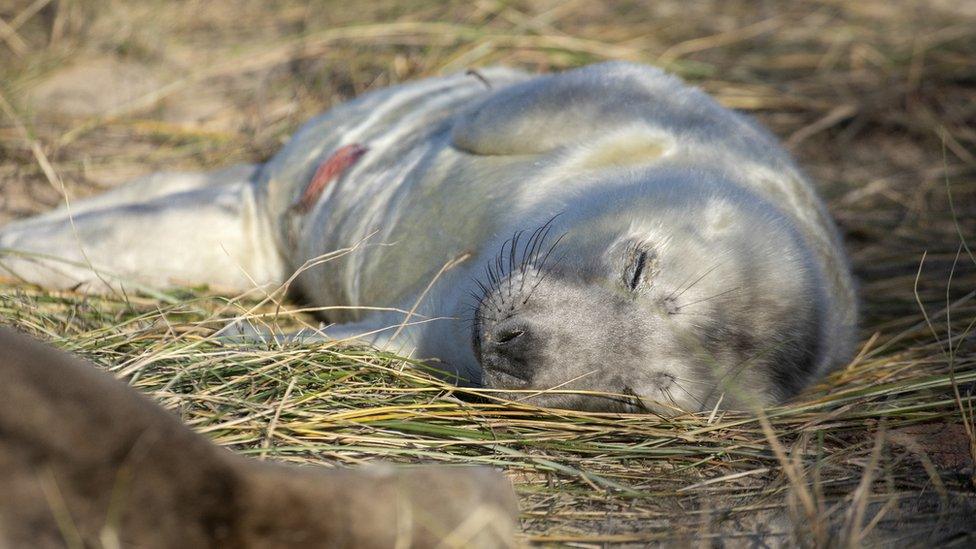
A newborn seal pup sleeping on Blakeney Point
The National Trust said the remoteness of its reserve and the limited amount of disturbance the seals experienced provided an ideal habitat.
In 2012, more than 1,000 pups were born, with 2,000 in 2014 and numbers exceeding 3,000 at the colony in December this winter.
Ranger Leighton Newman said: "The count, which began on 25 October, started slowly with fewer numbers born in the early days compared to previous years.
"But by the last week of November, births were in full swing, with an average of 150 pups being born every day."
He said visitors had ensured that the seals had the space they needed, by sticking to way marked routes and staying clear of fenced-off areas.
"This all helps ensure the colony can thrive," he said.
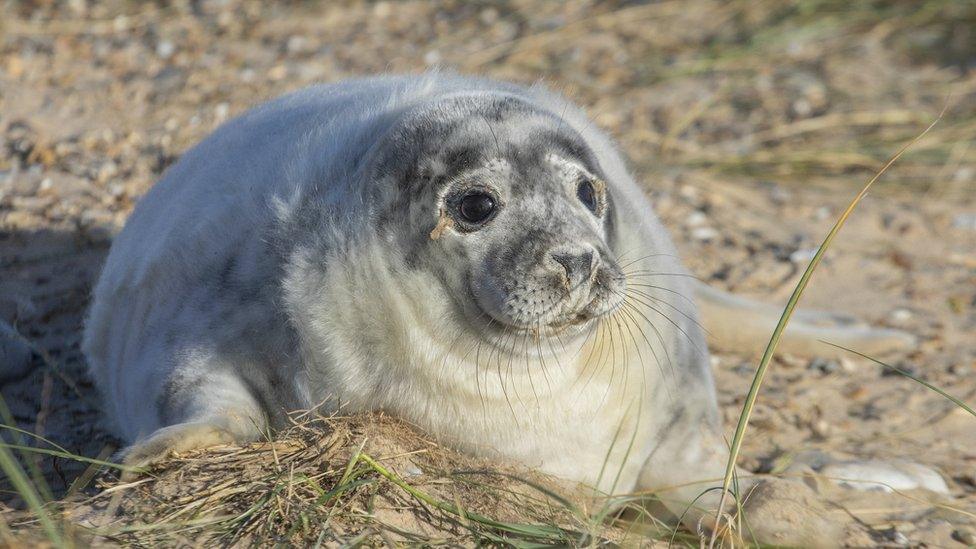
The death rate of grey seal pups on Blakeney Point this winter was just 1.5%
About 20,000 grey seal pups have been born at Blakeney over the last 30 years, the Trust said, with a mortality rate of just 1.5% this winter.
Other seal colonies along the east coast have also done well this year, it said, with nearby Horsey seeing births pass the 2,000 mark for the first time. The Farne Islands off Northumberland also saw a record 2,602 pups born this winter.
- Published19 December 2018
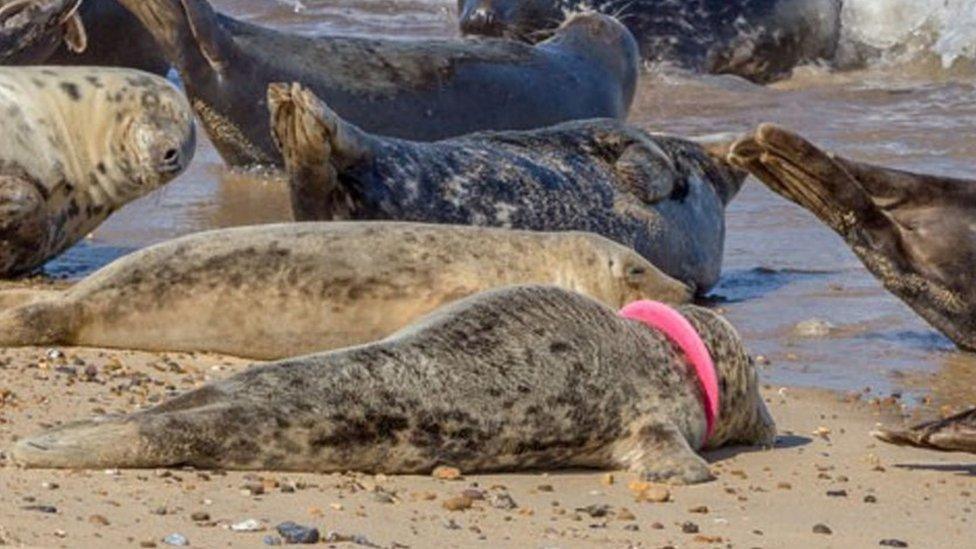
- Published31 May 2018
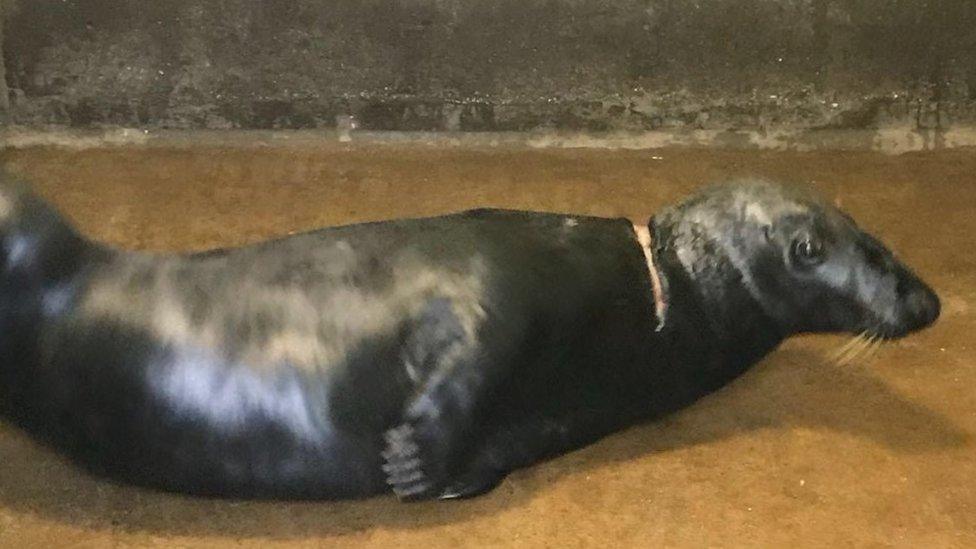
- Published21 February 2018
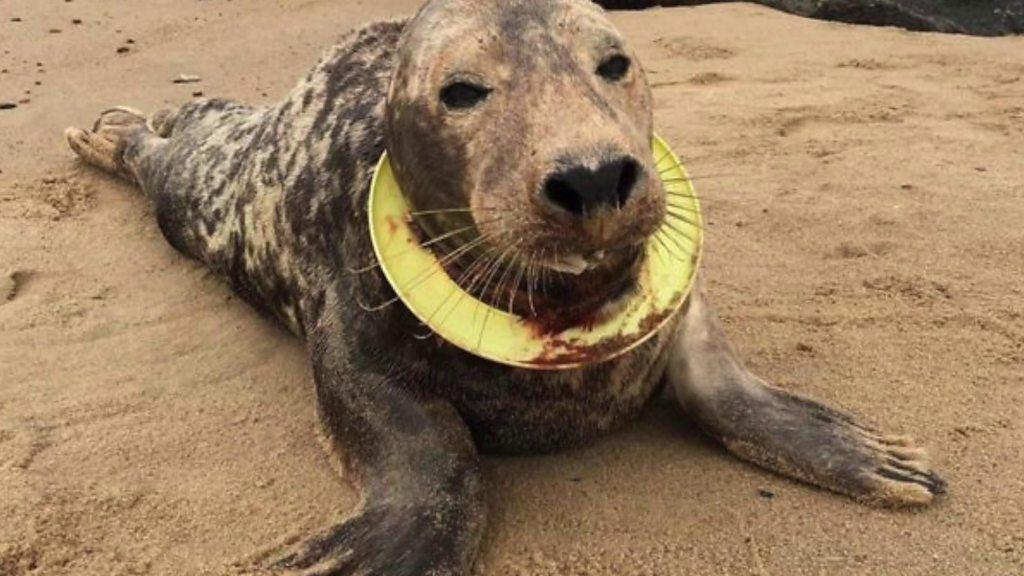
- Published25 August 2017
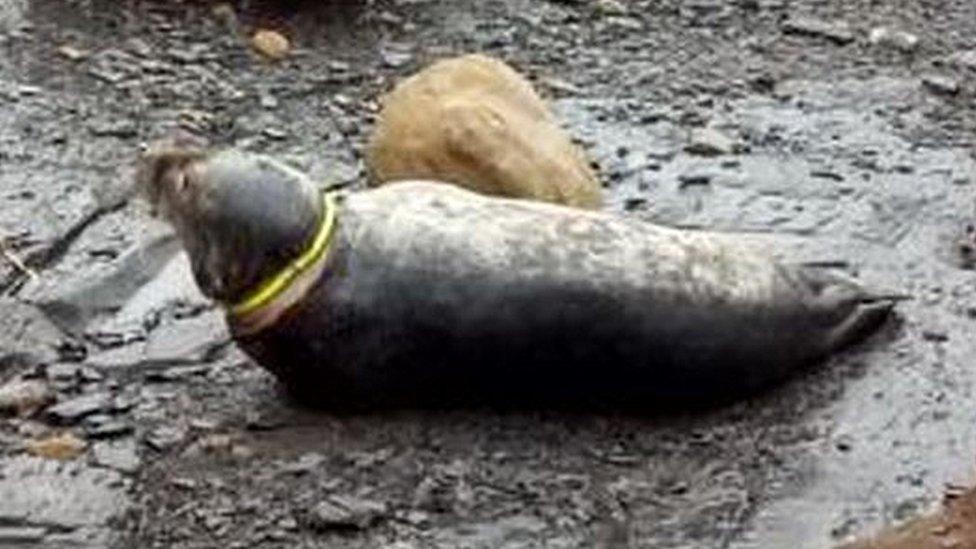
- Published9 January 2016
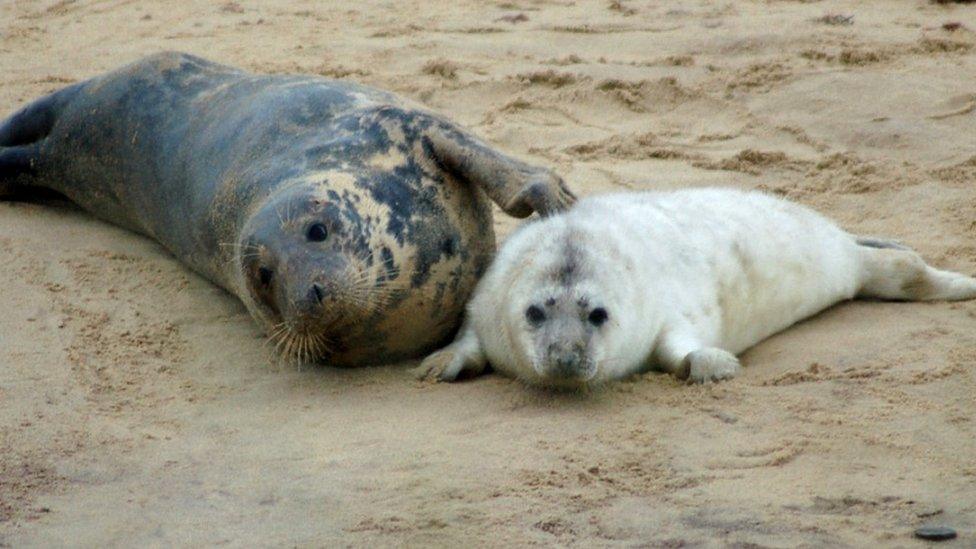
- Published3 January 2013
